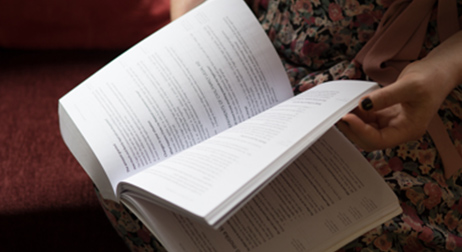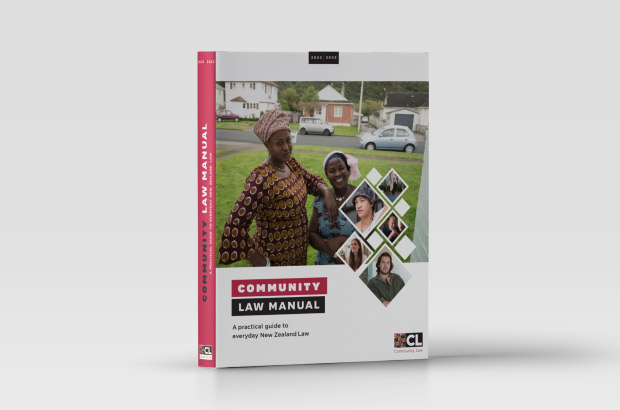Enforcement powers of police and parking wardens
Police: Their traffic enforcement powers
Police officers’ general traffic enforcement powers
Land Transport Act 1998, s 113(2)
Police officers have the following traffic enforcement powers:
- if you’re on a road (whether or not you’re driving), the police can order you to give them your full name, full address, date of birth, occupation and phone number, as well as any other details needed to identify you
- if you’re on a road, they can also order you to give them any information you have that would identify the driver of any vehicle (but you don’t have to do this if you’re under arrest)
- the police can inspect, test or examine any part of your vehicle and any driver’s licence, warrant of fitness, or other official land transport document displayed on or carried in your vehicle
- they can enter and move your vehicle to a place where it won’t be a traffic hazard, or order you to move it or authorise a tow-truck operator to move it, if they believe on reasonable grounds that the vehicle is obstructing the road or an entrance or that it’s a safety risk or inconveniencing the public
- if you don’t have a licence, the police can forbid you from driving any motor vehicle.
Police powers to require drivers to stop and give details
When can the police order me to stop?
Land Transport Act 1998, ss 114, 115 Search and Surveillance Act 2012, s 128
The police can signal you to stop whenever you’re driving, so long as the police officer is in uniform or wearing distinctive headgear with an official badge on it. You must then stop as soon as you can. A police vehicle driving behind you can also require you to stop, either by using a siren or by flashing blue (or blue and red) lights.
The police can require you to stay stopped for as long as is reasonably necessary for them to get your details and certain other information, or to exercise any of their other powers. They can require you:
- to give them your full name, full address, date of birth, occupation and phone number
- to tell them whether you’re the owner of the vehicle
- if you’re not the owner, to give them the owner’s name and address, or other details that would help identify the owner.
However, if the police have stopped you only so they can establish who’s driving the vehicle, they can’t require you to stay stopped for more than 15 minutes.
The police can forbid you to drive your vehicle on any road if the vehicle is unsafe or doesn’t comply with traffic regulations and rules.
What can happen if I don’t stop and give my details when required to?
Land Transport Act 1998, ss 52, 114
The police can arrest you if you don’t stop and stay stopped when they require you to, or if you don’t give your details as required, or if you give false or misleading information. If you’re convicted in court, you can be fined up to $10,000 for this.
If you’re convicted a second time of failing to stop and give your details, you’ll automatically be disqualified from driving for three months. For a third or further conviction, you can be imprisoned for up to three months and you’ll automatically be disqualified for one year.
You’ll also get a three-month disqualification if you’re convicted of not stopping and giving your details and at the time you were speeding or otherwise driving dangerously.
Police powers to go onto property and enter homes
Land Transport Act 1998, s 119
Going onto private property to carry out a breath test
The police can pursue you onto your property and into your home to carry out a breath-alcohol test if:
- they suspect you’ve been driving recklessly or dangerously, or driving under the influence of drink or drugs, and
- you failed to stop and stay stopped for the police, or failed to give them your details and other necessary information when required.
If necessary, the police can use force to get onto your property or to enter your home.
Going onto private property to seize a vehicle
The police have the power to seize and impound your vehicle in some cases (for example, if it’s been involved in a hit-and-run offence), and in certain situations they can also go onto or into your property to get it, without a court warrant, and using force if necessary. They can do this if:
- they’ve been continuously following you from the time of an alleged offence, until the time your vehicle entered your property (called “freshly pursuing” your vehicle), or
- it’s likely that you were about to remove, hide, destroy or dispose of the vehicle, or
- they have a reasonable suspicion that you were about to use the vehicle to commit an offence for which you could be sent to prison.
The police can only use this entry power if waiting to get a court warrant would have given you a chance to remove, hide, destroy or dispose of the vehicle or to use it to commit an imprisonable offence (see: “Losing your vehicle: Impounding and confiscation”).
Police officers going onto private property must identify themselves
Search and Surveillance Act 2012, s 131
If the police use their powers to go onto your property (see above), they must identify themselves, and they must also tell you that the powers are given by section 119 of the Land Transport Act 1998. If they’re not in uniform, they also have to show you proof that they’re police officers.
Police powers to make arrests in some cases
When can the police arrest someone without a court warrant?
Land Transport Act 1998, s 120
The police can arrest you for a driving offence without a warrant if they have good reason to suspect you of any of the following things:
- Driving under the influence – driving (or trying to drive) while under the influence of alcohol or drugs so that you’re not able to properly control your vehicle
- Using Class A drugs – driving (or trying to drive) after taking Class A illegal drugs, like heroin, LSD or P
- Failing a drug impairment test – failing a compulsory impairment test for illegal drugs or prescription medicines
- Injuring someone through drink/drug driving – injuring or killing someone through careless driving while you were affected by drink or drugs, or while you were driving with a breath-alcohol level over 400 micrograms or with blood-alcohol over 80 milligrams –these are the levels over which adult drivers will get a criminal conviction, rather than just a ticket (an “infringement notice”)
- Refusing tests – refusing to have a blood test or to do a drug impairment test, or refusing to go with or stay with a police officer to have a breath or blood test or a drug impairment test
- Assault on an officer – assaulting any police officer or other traffic enforcement officer.
Note: Police officers and other traffic enforcement officers can also exercise any other arrest powers they have under the Land Transport Act or under another Act such as the Crimes Act 1961. The police also have entry powers unrelated to traffic offences (see: “Police powers”).
Police powers to immobilise and seize vehicles
Power to forbid driving and immobilise vehicles
Land Transport Act 1998, ss 121, 121A
The police can order you not to drive and can prevent your vehicle from being driven (“immobilise”) or move your vehicle if they believe on reasonable grounds that:
- you’re not capable of properly controlling the vehicle, or
- you’ve failed a drug impairment test or you’ve refused to do the test, or
- you’ve breached the rules on driving hours and rest time for truck drivers and other commercial drivers, or
- you’ve breached the conditions of a learner licence or restricted licence.
In these situations, the police officer can do one or more of the following things:
- order you not to drive for a specific period
- order you to drive home or to some other specific place where you can rest
- take your keys
- prevent the vehicle from being able to be driven (“immobilise” it) or move it to where it won’t be a traffic hazard.
If an evidential breath test shows that your breath-alcohol level is more than 400 micrograms, the police officer will forbid you to drive for 12 hours, unless they’re satisfied that a shorter time is justified.
If you’ve breached a learner or restricted licence, you won’t be able to drive again until you can do so without breaching your licence – for example, if you were caught driving without a supervisor after 10pm in breach of your restricted licence, you won’t be able to drive on your own again until 5 am the next morning.
If you don’t follow the police officer’s instructions, they can arrest you.
Power to seize vehicle if an emergency, serious accident or failure to stop
Land Transport Act 1998, ss 122, 123
The police can seize and impound vehicles for up to 12 hours in an emergency involving public safety. They can extend this for up to another 12 hours if they believe this is necessary.
The police can also impound vehicles for up to seven days when there’s been a “serious traffic accident” (meaning someone has been injured or killed) or hit-and-run offence or when the driver has failed to stop for the police, if impounding the vehicle is necessary to preserve evidence or establish the cause of the accident. The District Court can extend the impounding period for up to another seven days, and can later renew any extension it has given.
In some situations, the police are required to seize and impound your vehicle for 28 days – for example, if you’re driving while disqualified (see: “Losing your vehicle: Impounding and confiscation”).


